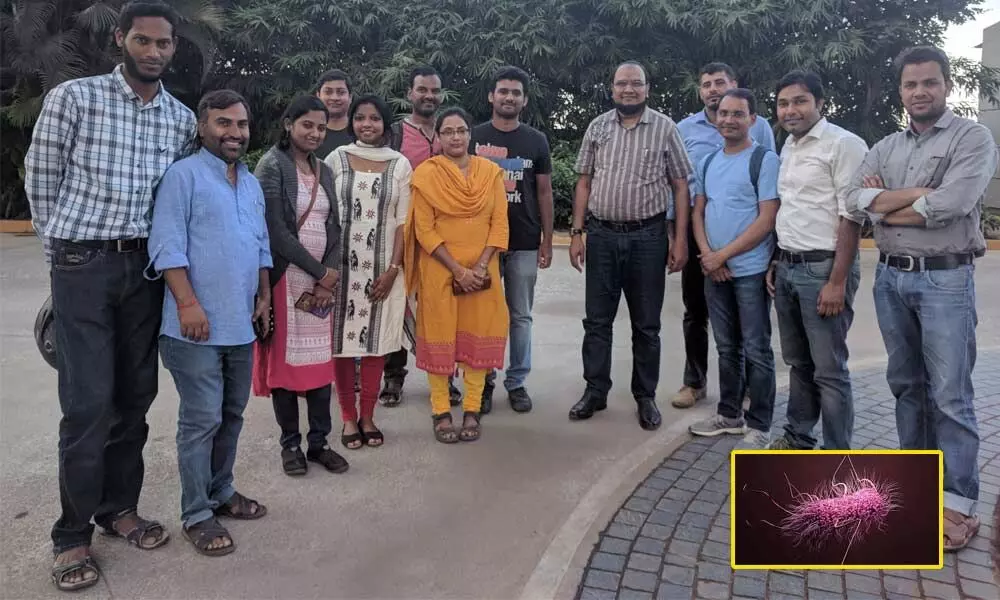University of Hyderabad study presents key insights on E.coli

University of Hyderabad study presents key insights on E.coli
Research on genotoxic bacterial strains of E. coli finds place in intl journal, mBio
Gachibowli: A research team led by Prof Niyaz Ahmed at the University of Hyderabad (UoH) examined 4,000 genomes of genotoxic bacterial strains of E. coli using high-throughput comparative genomics and phylogenetic analyses to understand the prevalence and epidemiology of the bacteria that produce colibactin, a genotoxin that causes DNA breaks leading to cancer.
The team gained crucial insights into the distribution, transfer, and maintenance of pathogenic islands, as they harbor multiple virulence genes involved in pathogenesis and clinical implications of the infection.
The good news, however, is that these types of strains are relatively small in number in nature as compared to other non-toxigenic E. coli populations. Nonetheless, there is a danger that due to horizontal gene transfers, occurring frequently in bacteria, the genotoxin encoding islands could be acquired by or shared with other innocuous bacteria as well.
The study also highlights that a good hygiene and sanitation could keep them at bay. The study is very impactful in terms of future understanding of the role of bacteria in cancer progression. The authors suggest that further in-depth studies may help in exact risk assessment relevant in epidemiology and public health.
The findings of the study were published in the March 2, 2021 issue of an international journal, mBio published by the American Society for Microbiology. Researchers from Robert Koch Institute, Berlin, Germany and Dr D Y Patil Vidyapeeth, Pune, India also participated in the study.

















